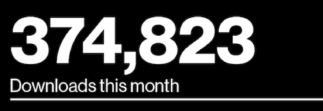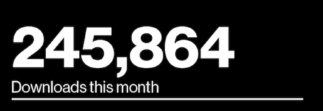 Updated Nov. 21, 2022
Updated Nov. 21, 2022
In 2019, MIT’s Ad Hoc Task Force on Open Access to MIT’s Research published an ambitious set of recommendations, including that MIT should establish an Open Monograph Fund to support MIT authors whose publishers require a subvention to offset publication costs of open access scholarly monographs. We are very pleased to announce that the MIT Libraries has launched just such a fund, and we invite any MIT author who wishes to share an open access version of their scholarly monograph with the world to apply for funds. To apply for funds, please fill out this form.
Please note that the funding is for students, staff, or faculty, and covers “professional books” of foundational scholarship for a specialized audience. Generally this does not include trade books or textbooks. Questions or want more information? Ask Scholarly Communications.
We are grateful for generous support from the Office of the Provost in making this fund possible.
Benefits of open access for monographs:
Reach: Sales of print monographs tend to range from a few hundred to several thousand copies. In 2021, MIT Press reported that its monograph print runs declined from 1,500 copies to fewer than 500. Making an open access (OA) version is a great way to increase its reach and impact. Results of a 2021 study comparing open and closed books “show higher geographic diversity of usage, higher numbers of downloads and more citations for open access books across all strata. Importantly, open access books have increased access and usage for traditionally underserved populations.”
“I write to be read, and publishing open access increases the potential audience size by eliminating the cost barrier of having to purchase the book,” says Edward Schiappa, John E. Burchard Professor of Humanities. “This is especially important to me as my OA book (The Transgender Exigency) is interdisciplinary, and I want to do all I can to reach an interdisciplinary audience. OA also makes the book easily available for graduate students or budget-minded young faculty members. I also love the fact that my publisher makes each chapter available OA, so the case studies explored in my book can be easily downloaded and shared.”
Equity/social justice: A long-standing argument in favor of open access has been equity of “consumption” — the ability for anyone, anywhere to read, share, or reuse others’ works. A newer angle on equity and open access is in publishing: Can all scholars, no matter where they are or what funding they have, contribute to the scholarly conversation?
This new funding doesn’t help scholars globally, but it does help MIT researchers, and particularly social scientists and humanists who may not receive grant funds that help them to share their research broadly. That research, in turn, may help others who lack funds to pay for a print monograph. “OA is attractive because of the groups that I care about reaching: urban planners, activists, nonprofits, community based organizations, students. They might not have the funds to purchase an academic book so I’d like to lower the bar as much as possible,” says Catherine D’Ignazio, associate professor of urban science and planning.


